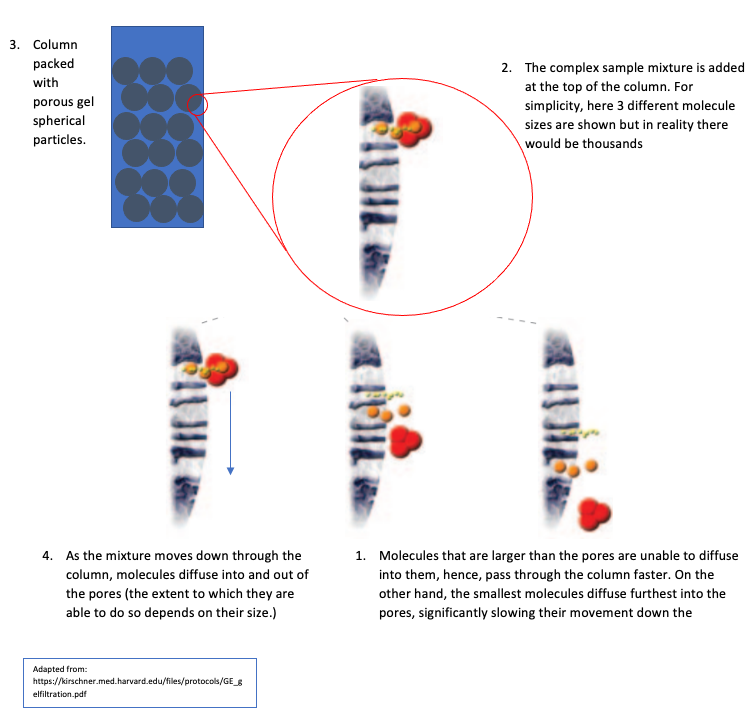Resource | Mollie's Blog 18
Meet the Scientists
As I am now entering my final month at MRC PPU before I return to university in Bath I am determined to make as much progress with my project as possible. So what better time to learn a new technique!
Next week I am recruiting the expertise of Dr Axel Knebel, the MRC PPU’s main man for protein production and purification. Dr Knebel will be taking me through gel filtration – a chromatography technique used to separate components of a complex mixture (such as a whole cell lysate) based on their weight and size. In gel filtration a column is packed with a gel that forms a porous matrix. Particles of different sizes are able to diffuse into and out of the pores to differing extents, with smaller molecules penetrating further into the pores than larger molecules. Hence, smaller molecules take longer to move through the column. In this way, we can obtain a series of fractions of the original complex mixture for which we know the weight and size.

Next week I am recruiting the expertise of Dr Axel Knebel, the MRC PPU’s main man for protein production and purification. Dr Knebel will be taking me through gel filtration – a chromatography technique used to separate components of a complex mixture (such as a whole cell lysate) based on their weight and size. In gel filtration a column is packed with a gel that forms a porous matrix. Particles of different sizes are able to diffuse into and out of the pores to differing extents, with smaller molecules penetrating further into the pores than larger molecules. Hence, smaller molecules take longer to move through the column. In this way, we can obtain a series of fractions of the original complex mixture for which we know the weight and size.
After running my whole cell lysate on the gel filtration column, we will be left with several fractions. A fraction is simply a subset of the molecules from the original complex mixture with a defined size range, for example small, medium and large molecules. The next challenge is then to find which of the fractions contain PP1 – and hopefully its subunit that aids its activity against phospho-ubiquitin. Using the dephosphorylation assay I have already developed, with any luck I will only find activity in one or two different fractions. This dramatically improves our chances of finding the subunit for PP1 as it significantly reduces the number of proteins we are looking at. The needle in a haystack becoming a needle in a haybale.
In the past, researchers at the unit have been able to use this technique to discover proteins and their complexes so in the future there may be some ground-breaking results for this project using this method. Unfortunately, it is unlikely that we will be able to elucidate the exact components of the complex in the remaining time I have in the lab, however, I feel very privileged to be undertaking the very first experiments that could lead to a later discovery.
With just a few days left in June we have already exceeded our North Coast 500 challenge, with a total of 863 miles covered and 19,845m climbed (the equivalent of almost 15 times climbing Ben Nevis.) Hopefully we can make 1000 miles before the end of the month and raise even more money for Parkinson’s Disease research.
